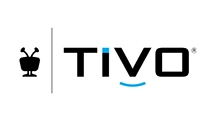Cheap Code Signing Certificates
Display Digital Identity and Build Brand Reputation for Your Software and Web Applications Using Cheap Code Signing Certificates from Trusted Certificate Authorities.
Avail the leverage of rock-solid code signing certificates for all major web platforms such as Apple iOS, Adobe Air, Java Applets, and Windows driver signing. Acceleration of brand reputation, and high return on minimal investment by buying a Cheap Code Signing Certificate from CheapSSLWeb.com.
- Standard Validation
- Removes Unknown Publisher Error
- Secure Digital Signature
- Unlimited Software & App Signing
- 3072-bit/4096-bit RSA Key
- Shows Publisher Information
- Includes timestamp functionality
- 3072-bit RSA Signing Key
- 1 to 3 Days Issuance
- Allowed for Individual Developer
- Safe Digital Signature
- Secure App & Software
- Includes timestamp functionality
- SHA-2 Encryption
- Boost Software Integrity
- Safe Digital Signature
- Allowed for Individual Developer
- Secure App & Software
- Extended Validation
- Shows Publisher Information
- Private Key in USB Token
- Boost MS Smartscreen Score
- Unlimited Software & App Signing
- 3072-bit/4096-bit RSA Key
- Includes timestamp functionality
- Unlimited Signing
- 3072-bit Signature Key
- Boost MS Smartscreen Score
- USB Token Storage
- 1-5 Business Days
- 3072-bit Signature Key
- SHA-2 Encryption
- USB Token Storage
- Boost MS Smartscreen Score
- Support All Platforms
- 1-5 Business Days
Buy Cheap Code Signing Certificate and Make Software or Web Apps Temper-Proof
What is the need for Code Signing Certificate?
Code Signing Certificates help software developer and publisher secure the source code and turn the application's status to legitimate. Every operating system checks the publisher information through a digital certificate when an end-user runs an executable file. If the system finds relevant details, software gets installed; otherwise, an Unknown Publisher warning gets displayed. Therefore, software security and reputation increase by using a Code Signing Certificate.
From Where can I avail Code Signing Certificate?
To avail of a Code Signing Certificate, software developer and publishers must purchase it from a trusted distributor, such as CheapSSLWeb.com. After the payment completion, the process gets forwarded to the concerned Certificate Authority. Then, the publisher has to undergo a vetting procedure according to the validation level of the purchased certificate, i.e., IV, OV, and EV validation levels. Once the validation completes, CA issues the Code Signing Certificate.
How Code Signing eliminates Unknown Publisher Warning?
When a publisher utilizes a Code Signing Certificate, its details and root Certificate Authority's details get embedded with the software. When an end-user tries to install the software, the systems find the Code Signing Certificate, check the publisher signature, and then assess the root CA. The user doesn't face an Unknown Publisher Warning if the system considers all the relevant information according to its in-built database.
Does Code Signing remove malicious code from software?
No, Code Signing doesn't remove malicious code from the software. Its primary purpose is to secure the source code by performing hashing and encryption. Moreover, it helps to enhance the brand reputation across digital platforms by embedding the digital signature, defining that publisher has authentication from a reputed CA. Additionally, the developer must assess the overall code before signing and removing malicious code.
The Reason You Need a Cheap Code Signing Certificate
Tamper-Proof Code, Remove Warnings, Build User Confidence and Accelerate Software and Apps Downloads

ISSUE
The system displays Unknown Publisher and SmartScreen Warning to end-users when they try to install the software or run an executable file.

SOLUTION
Digitally sign your software and scripts with an IV, OV, or EV Code Signing Certificates to let the system and stakeholders verify and understand your legitimacy.

OUTCOME
Seamless running of executable files and smooth software installation at end devices without any warnings and alerts.
The Most Versatile Code Signing Certificates
We provide the best Code Signing Certificates, leveraging to secure all major file types and compatibility across all significant operating systems and browsers, including Windows, iOS, Java, VBA, and more.
MS Office
MS Windows OS 7, 8 & 10
Adobe Air Applications
Mozilla Object Files
Java Applications & Apples
Microsoft Office VBA (Visual Basic for Applications) and Microsoft Office Macro Files
MS Authenticode user & different file formats of kernel mode like .ocx, .xap, .msi, .exe, .dll, .cab and .xpi Microsoft Edge Apple Plug-ins and Application
Code Signing Certificates Price Comparison
| Subscription |
|
|
|
|
|---|---|---|---|---|
| Options for Multiple Years | Max 3 years | Max 3 years | Max 3 years | Max 3 years |
| Issuance Time | 4-8 Business Days | 4-8 Business Days | 4-8 Business Days | 4-8 Business Days |
| Encryption Strength | SHA – 2, Up to 256-bits | SHA – 2, Up to 256-bits | SHA – 2, Up to 256-bits | SHA – 2, Up to 256-bits |
| CSR/RSA Key Length | 3072-bit or 4096-bit | 3072-bit or 4096-bit | 3072-bit or 4096-bit | 3072-bit or 4096-bit |
| Device Ubiquity | More than 99% | More than 99% | More than 99% | More than 99% |
| Validation Type | Standard Validation | Extended Validation | Standard Validation | Extended Validation |
| Validation Methods | Phone Call & Basic Business Validation | Phone Call & Business Validation | Phone Call & Basic Business Validation | Phone Call & Business Validation |
| Instant Reputation w/ MS Smartscreen Filter | No | Yes | No | Yes |
| Delivery Modes | USB token | USB token | USB token | USB token |
| Time Stamp | ||||
| Malware Scan | ||||
| Free Vulnerability Check | ||||
| Technical Support | ||||
| Warranty | ||||
| Refund Policy | Within First 30 – Days | Within First 30 – Days | Within First 30 – Days | Within First 30 – Days |
| Visible Trust Indicator | Digital Signature | Digital Signature with Company Name | Digital Signature | Digital Signature with Company Name |
| Java Signing | ||||
| Microsoft Authenticode Signing | ||||
| MS Office Document Signing | ||||
| Windows Vista x64 kernel-mode signing | ||||
| Adobe Air Signing | ||||
| Microsoft Office VBA signing |
Benefits of Buying a Code Signing Certificate
Align your software and scripts with the latest security code signing certificate standards, eliminate warnings for stakeholders and prevent unauthorized alteration with a top-notch digital code signing certificate.
Code Tamper-Proofing
Code Signing aids in performing hashing and encryption on overall code and converting it to an unreadable format, which prevents malicious attackers from reading and modifying it.
Installation Warning Removal
Operating systems treat signed software as authentic and don't show an Unknown Publisher Warning to users when they install signed applications.
Software Timestamping
Timestamping aids the publisher in maintaining software authenticity after the Code Signing Certificate expiration and maintains code integrity and confidentiality.
Brand Recognition
A recognized CA, such as Comodo, Sectigo, or Certera, will back up your brand authentication, enhancing your reputation across browsers and operating systems.
Unlimited Signing of Software and Apps
With a single Code Signing Certificate, you can secure unlimited software, scripts, and executable files without any complexity and limitation.
Multiple File Format Support
With any Code Signing Certificate from CheapSSLWeb, you sign any file type, including .exe, .java, .ps1, iOS-based apps, and much more.
All-Rounder Support for 24/7
With every Code Signing Certificate, you get 24/7 support for 365 days a year from professional security experts for any general and technical query.
30-Day Money-Back Assurance
You can avail of a 100% money return if you cancel the order for any reason within 30 days from the purchase date.
Best Practices To Follow For Code Signing Certificates
Every software developer and publisher must consider the best practices for impeccable, relevant, and secure usage of a Code Signing Certificate.
Utilize Hardware Storage Component
To prevent unauthorized persons from accessing and utilizing the Code Signing Certificate, you must always store the associated private key in a hardware component, such as a USB drive aligning with FIPS-140 standard
Maintain Logs
Consistently maintain and audit the logs to record details of personnel accessing and using the Code Signing Certificate along with the date, time, and system information, as it will help to find the root cause if anything wrong happens.
Access Controls on Private Key
Configure multiple access, authentication, and authorization controls on the private key to allow only legitimate and authorized persons to sign the software and scripts digitally. Moreover, it will prevent malicious actors from performing reverse engineering.
Limit Certificate Usage
You must utilize a single certificate to sign limited executable files, as if the private key gets breached, it will trigger alarms for all your applications. And then, you will have to declare your software invalid and revoke the certificate.
Assess Code Before Signing
Before executing the Code Signing process, you must always analyze the overall code, scan it for malicious blocks, and cross-verify its functionality with the defined goals and requirements. It will help you understand that code is appropriate and ready for end-users.
Differentiate Test and Release Certificate
Every publisher must purchase two Code Signing Certificates. One for testing purposes and the other for the final release. As a result, you will thoroughly test the software and release a perfect solution for end-users. Moreover, only a limited number of people must be allowed to access the final release certificate.
Code Signing Certificate Delivery Methods
Beginning June 1st, 2023, it is necessary to comply with the new guidelines established by the Certificate Authority/Browser Forum for the issuance of Code Signing Certificates. These guidelines require the use of secure hardware storage devices, such as Hardware Security Modules (HSMs), Hardware storage tokens, or Trusted Platform Modules (TPMs), that meet the highest security standards like FIPS 140 Level 2, Common Criteria EAL 4+, or their equivalents, for generating, storing, and utilizing private keys.
To comply with the updated guidelines set by the Certificate Authority/Browser Forum, it is recommended to utilize USB Token for storing cryptographic keys. You can use our flexible and dependable solutions for secure key storage. These solutions are designed to seamlessly integrate into your existing workflows and offer peace of mind while maintaining efficiency.
Delivery Method 1: Get a USB Token Delivered to Your Door
We provide convenient shipping choices for both local and global locations, ensuring that the USB token reaches your doorstep with ease. Our pricing options are varied, allowing you to select the most suitable one based on your specific needs.
Token + US Delivery: For a cost-effective fee of $80.00, have the USB token securely shipped to any location within the United States.
Token + International Delivery: Developers located outside the United States can take advantage of international delivery for $110.00.
Token + Expedited US Delivery: If you require the USB token urgently within the United States, opt for expedited delivery at $120.00 to receive it promptly. Minimize potential delays and seamlessly integrate the USB token into your workflow.
Delivery Method 2: Utilize Your Own Hardware Security Module
If you already possess a certified Hardware Security Module (HSM) or USB token, leverage its capabilities for secure key storage. Ensure that your device meets the stringent security standards of at least FIPS 140-2 Level 2 or Common Criteria EAL 4+ to ensure optimal protection.
Delivery Method 3: Keep Your Private Key Safe in the Cloud
You can simplify your code signing processes using the cloud-based key storage solution without compromising security. Take advantage of the secure cloud environment equipped with Hardware Security Module (HSM) capabilities and centralize your private key storage, making it easily accessible for your distributed development teams.
What is FIPS 140-2 Hardware Token?
FIPS 140-2 is a Federal standard in the US and Canada. This standard acts as an essential safety precaution and a trustworthy best practice for corporations pursuing solid security solutions. FIPS 140-2 has four security stages, ranging from level 1, indicating the lowest degree of security, to level 4, indicating the most advanced form of protection possible.
As CA/B forum introduced new regulation for standard code signing certificates, subscriber or user should use FIPS 140-2 (or higher level) compliance hardware token to generate and store CSR, and private keys. There are multiple options for users such as they can acquire FIPS 140-2 token directly from Certificate Authority by paying extra amount along with the certificate cost, or you can use your own hardware token.
A FIPS 140-2 hardware token is a tiny electronic gadget that stores and shields confidential data such as CSR, intermediate certificate, private keys. These tokens are intended to fulfill the security criteria stated in FIPS 140-2 and are frequently used in conjunction with code signing certificates to certify the reliability of software and that it has not been modified since its release.
What is HSM (Hardware Security Module in Code Signing)?
A Hardware Security Module, or HSM, is a sophisticated physical hardware device that assures the safe completion of data encryption procedures. It handles various functions such as managing cryptographic private keys, encrypting and managing their lifecycle, generating and validating digital signatures, certificate signing request (CSR), etc. Personal Computer Security Modules (PCSMs), Secure Application Modules (SAMs), and hardware cryptographic modules are other names for HSMs.
HSM devices come in a broad range of types, ranging from USB sticks and plug-in cards to massive external devices. Hardware Security Modules (HSMs) are incredibly secure since they have a hardened operating system and limited network access regulated by a firewall. HSMs are frequently used to:
- Outperform existing and upcoming regulations regarding cybersecurity.
- Acquire higher degrees of data assurance and confidence.
- Maintain high standards of service and agility in business.
Why do you need HSM (Hardware Security Module) for your Code Signing?
Hardware Security Module (HSMs) are crucial for code signing certificates because they keep the private keys that is needed to sign the software extremely safe. An essential step in the code signing process is the private key. It might be used to sign malicious software and lead to various issues if it falls into the wrong hands. By keeping the private key on a tamper-proof device entirely independent of the signing server, HSMs help prevent this. In this manner, the private key is kept safe and secure even if the signing server is compromised.
The technique of code signing is also greatly facilitated by HSMs. The signature server may concentrate on other critical activities, such as overseeing the code signing method and confirming the rightfulness of the program being signed, by letting the HSM handle all the cryptography. This can significantly enhance system performance as a whole and lower the possibility of mistakes or delays during code signing.
By employing HSMs for code signing certificates will assist in guaranteeing that your company complies with all data security laws and policies. HSMs are generally hardware components that have undergone validation and meet industry requirements.
Comodo Code Signing Certificate
Comodo Code Signing Certificate is a cost-effective digital certificate for individual software developers and publishers who want to add digital signatures in software and web applications. It includes a 3072 bit encryption key and it’s like a proof of authentication from the software publisher that it has not been subjected to tampering or modification since it was signed. Also, it comes with a timestamp, which provides a verifiable record of when the code was signed.
Learn MoreSectigo Code Signing Certificate
Sectigo Code Signing Certificates authenticate the identity of the software publisher and ensure that the code has not been tampered with, making it more trustworthy and reliable for end-users. With cryptographic protection against code tampering, the certificate is a versatile option for software developers.
Learn MoreComodo EV Code Signing Certificate
The Comodo EV Code Signing Certificate exhibits compatibility with multiple platforms such as Java, Microsoft Windows & Adobe Air applications, Apple, Macros, Silverlight application, Windows x64 Kernel Mode file-formats such as .exe, .cab, .xpi,.dll, .ocx,, xap, .msi. Use this certificate to boost your Microsoft SmartScreen score and assure that the code you distribute is from a legitimate source.
Learn MoreSectigo EV Code Signing Certificate
Instill trust and confidence in your customers and develop a reputation by signing your code with Sectigo EV Code Signing Certificate. Along with robust multi-factor authentication, the certificate includes hardware tokens and biometrics to ensure that only authorized users can sign the code.
Learn MoreCode Signing Certificate: How It Works?
Step-by-Step Process of Standard or Normal Code Signing Certificate
Code Signing Certificate performs two primary operations, hashing, and encryption. It utilizes the latest algorithms to execute both procedures on source code to make it tamper-proof. In addition, it aids in adding the CA-authenticated digital identity of the publisher with software, which helps users and operating systems understand the legitimacy of executable files. Additionally, you can utilize a Standard Code Signing Certificate for drivers, application packages, scripts, Java Applets, iOS-based files, plug-ins, macros, and much more. Further, the following steps get executed during the digital signing procedure:
- The Code Signing Certificate executes hashing procedure and creates a hash digest. Then it takes the hash value and performs encryption using the cryptographic private and public keys. In addition, the certificate embeds a digital signature along with root CA details in the executable file.
- Once the software gets signed, the publisher uploads it to a public repository, allowing end-users to download and install it.
- When someone initiates the download, the browser creates a hash value and verify with the hash digest generated during the signing process.
- If both hash values verify entirely, the download gets started; otherwise, the browser blocks it and displays a warning.
- Following download, the system verifies the publisher signature, hash value, and root CA details when the user initiates the installation or runs the script.
- If the system gets the expected result, installation begins. Otherwise, an Unknown Publisher Warning gets displayed. Therefore, using a reliable Code Signing Certificate is always beneficial.

Step-by-Step Process of an EV Code Signing Certificate
EV Code Signing Certificate is a cutting-edge software security solution. CA issues it to organizations with a minimum of three years of operability at a physical address. Every EV Certificate provides instant acceleration to the brand's reputation and eliminates SmartScreen warnings from the installation procedure. In addition, you receive its private key in a hardware token by default, supporting to align with best practices.
The Digital Signing using EV Code Signing Certificate includes the following steps:
- To initiate the EV Code Signing Process, you need to plug in the hardware token received from Certificate Authority. It will allow the certificate to access the private key and execute encryption.
- Once the certificate completes code hashing, encryption, and integration of digital sign and CA relevant details, the publisher uploads it for distribution among end-users.
- When the end-user tries downloading signed software, the browser confirms the software's authenticity by comparing the hash values, similar to the standard signing process.
- Further, during the installation process, the operating system will authenticate the hash value, publisher, and CA information through the Chain of Trust.
- The system will seamlessly execute installation if your software has a sign with an EV Code Signing Certificate. Moreover, the end-users will not face any Unknown Publisher and SmartScreen warnings.

Code Integrity Verification using Standard and EV Code Signing Certificate
For the Code Sign verification purposes, you can utilize the CA preferred tools, if any. However, you can also use the Windows Operating System and Microsoft Software Development Kit.

Digital Signature Verification Through Windows Operating System (OS)
- Select the application and right-click to open the menu.
- Select the properties option from the menu.
- Navigate to Digital Signature Tab, and you will see all the essential details.
Remember, you must perform the above steps with the original application, not its shortcut.
Digital Sign Verification Through Microsoft SDK
You can find Microsoft SDK as the default utility program in Microsoft Windows 7 and version 4 of the .NET Framework. It contains the SignTool, which you must utilize through Command Prompt to verify the signature. Further, you have to run the following command:
To verify the signature of the signed .apk (Application Package) file: verify FileName.exe
To confirm the signer’s details: verify /v FileName.exe
Cheap Code Signing Certificate FAQs
What is a YubiKey Code?
A YubiKey code is a unique set of credentials for one-shot login by a YubiKey hardware authentication component. When you plug-in the YubiKey device in your computer, and then touch it to authentication, it will produce a unique code that can be used for two-way authentication.
How Do I Use a YubiKey for a Code Signing Certificate?
To use a YubiKey for a code signing certificate, you will first need to have your code signing certificate stored on your YubiKey hardware token. You can accomplish this by following these steps:
- Step - 1 Purchase a token-based code signing certificate from a Certificate Authority and have it shipped to your company's location.
- Step - 2 Insert your YubiKey into a USB port on your computer to access the token-based code signing certificate.
- Step - 3 Configure the YubiKey software manager to unlock the token and set it as the signing method by entering your PIN or password.
Once you have completed these steps, you will be able to use your YubiKey to digitally sign your code using the code signing certificate. This enhances security and ensures that your code is trusted by users and other software.
How many certificates can be stored on a YubiKey?
According to YubiKey's policy, you can store up to 24 private key/certificate pairs on a single YubiKey token.
What is token signing?
Token signing is a process that verifies the authenticity and integrity of a token through the utilization of a digital signature. During this process, a token-signing certificate is employed, which consists of cryptographic private and public keys. This certificate is utilized to sign the security token, enhancing its security and ensuring its authenticity. Token signing certificates are generally issued by trusted certificate authorities and can be stored on an external hardware component like a YubiKey. When a hardware token is signed using a token-signing certificate integrated into a YubiKey, it verifies that the code signing certificate remains uncompromised and establishes an encrypted connection to authenticate the token's legitimacy.
What is a Code Signing Certificate?
A Code Signing Certificate is a software security solution that supports publishers in preventing unauthorized code modification. Moreover, it helps the developers embed their digital sign with the software and align with system standards. As a result, when end-users install the software, they don't encounter an Unknown Publisher Warning.
What are the different kinds of Code Signing Certificates?
Different types of Code Signing Certificates are:
- Individual Validated (IV) Code Signing Certificate (Only for independent software developers/publishers)
- Organization Validated (OV) Code Signing Certificate (Only for organizations/publishers)
- Extended Validated (EV) Code Signing Certificate (Only for enterprises with a minimum of three years of activeness)
What is the difference between Standard (OV) and EV Code Signing Certificates?
Standard and EV Code Signing Certificates are both only for organizations. Although to avail of the EV certificate, a firm has to prove three years of operational existence. In addition, when a CA issues an EV certificate, it provides a private key in an external hardware token.
Why is Code Signing Certificate necessary?
Code Signing Certificate offers the following leverages:
- Hashes and Encrypts the overall code and prevents illegitimate alteration.
- It helps to integrate digital signatures and enhance software authenticity.
- Eliminates Unknown Publisher Warning.
- It makes the application valid for a lifetime with a timestamp.
- Aids in aligning with security and industry standards.
- Build user confidence and improve productivity and revenue.
Who can avail of a Code Signing Certificate?
A solo/independent developer and an organization creating and providing software to its stakeholders are eligible for the Code Signing certificate. If you are ordering it as an organization, you must be at a physical location and registered as per government policies.
What type of file can be secured using a Code Signing Certificate?
Code Signing Certificate can secure the following file types:
- .exe
- .java
- .ps1 (PowerShell script)
- .cab
- .ocx
- .dll
- Apple OSX Applications
- Adobe-based files
- .xpi and much more
Does Code Signing and SSL Certificates are same?
No, Code Signing Certificates and SSL Certificates are not the same.
Code Signing Certificate is exclusive to secure source code and scripts. An SSL certificate is installed on websites to establish an encrypted channel between the web server and the client browser.
How much time does CA take to issue a Code Signing Certificate?
Time taken by CA to issue a Code Signing Certificate is as follows:
- IV Code Signing Certificate (1 – 3 Business Days)
- OV Code Signing Certificate (1 – 3 Business Days)
- EV Code Signing Certificate (3 – 5 Business Days)
How much does a Code Signing Certificate cost?
Code Signing Certificate starts from $49.99 per year and goes to $199.99 per year. The price of a Code Signing Certificate depends upon the CA, Certificate Provider, and Validation Type. In addition, you can get it at a discounted price during the festive season and annual sale.
What will happen if Code Signing Certificate expires?
If your Code Signing Certificate expires, it will raise two cases. First, if your software has a timestamp, it will remain valid after expiration. Secondly, if your software doesn’t have a timestamp, its authenticity will get terminated along with a certificate. Hence, you must always timestamp while signing.
Related Resources
Live Chat
Talk to our 24/7 SSL, Code Signing, & Email Signing experts to resolve issues regarding issuance, validation, & installation.
24/7 Email Ticketing
Connect with our support experts via call or support ticket for validation, or sales queries.
Code Signing Resources
Our Trusted Clients









